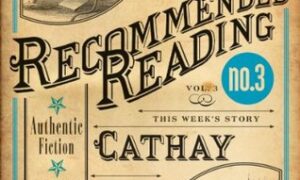 Give It Back by Danielle Esplin
Give It Back by Danielle Esplin
My rating: 3/5 cats



here’s the part where you shouldn’t listen to me, because here is where i am having a medium reaction to a book everyone else is raving about.
maybe i have domestic/psych suspense burnout, because while this one has the kind of shape i usually dig, there were a lot of issues i had that kept pulling me out of the narrative to scratch my head, which makes for a bad reading experience.
so—good things first—i do like the way this is told: alternating short POV chapters with three—count ’em—three unreliable narrators to muddy the waters. i do so love unreliable narrators and muddy waters, and having so many really makes for a playful tug-of-war with the reader, who has no idea who to trust or what to believe or who is wearing the villain hat. keeping the reader off-balance is one of the most appealing elements in psych suspense, so i liked how twisty this one was.
having said that, and keeping in mind that i did like the book overall, it would be dishonest of me to be carried away by the rave reviews and not point out the little bibbits that bothered me.
some of the problems i had were with the language. regardless of whose narrative we were in, there was an inclination to choose the fanciest word for the task (i.e. eyes described as “arcane”), which made the sentences clunky and stiff, and the characters more formal than they should, given their backgrounds and general attitudes.
We were gross, filthy-minded kids trying to make each other laugh to an impractical extent. Lorraine was more reserved than I was, a habitual taciturn teenager, utterly reticent about her personal affairs, but as soon as she felt comfortable with you, she’d transform into a verbose storyteller.
the sentence makes sense, but it comes across as writerly rather than natural.
the problem is that poetical language is dissonant when it creeps into this genre. the short chapters and quickchange narrators and frequent twists speed up the pace and make you keep turning those pages to see what’s next. when you throw in these five-dollar words, or are too heavy with the poetical hand: …he walks to the kitchen in a way that would enervate even an insomnia-prone adrenaline junkie, it slows the reader down and makes the pacing more languid, which is confusing to the reader. you can get away with it in a gothic-toned psych suspense, but it’s just clashing here.
I barely closed an eye. With the sublime awe of mothers, I got up twice in the middle of the night to feed Sam.
and here
As simple as that, and it was as though I’d undergone an exuviation.
that’s a perfectly appropriate word, but it’s an unusual choice to be put in the mouth of this character when there are much more natural-sounding options.
there were other problems i had that were more systemic—like how a no fault divorce from a successful man would result in him getting to keep the house she designed, forcing her and their child to move and not having to pay any alimony, or in the way the police handled their investigation—posting an individual’s inscrutable emo-journal-poetry in the newspaper and inviting readers to analyze it for clues, like it’s some kind of homicide scavenger hunt. it’s inauthentic.
also on the police side of things, when told that a forensic entomologist is being brought in to assist with the timeline of the murder, a character asks what that means and the response is:
“Entomology is the study of insects and their relationship to the environment, humans, and other organisms,” he explains. “In this case, we deal with necrophagous feeding insects that typically infest human remains, and we need to repeat the procedure before we can narrow down the time frame of death.” He falls silent for a moment. “Unfortunately this means blood spatter analysis could be affected. Roaches, fleas, and flies can produce tracking as they walk through splattered blood. Flies could possibly feed on *’s blood then pass partially digested blood in their feces, something known as flyspecks. These fecal droppings could be confusing, because they can be tested positive for human blood.
first of all – holy info-dump, but also—is that level of callous detail appropriate to divulge (in that didactic a tone) to View Spoiler »?? it seems a little unprofessional.
and i just don’t understand these characters. when lorraine visits her ex-husband, to whom she was married for thirteen years and who is the father of her child, to tell him she has cancer, this transpires:
“It’s apparently…quite fatal…this type of cancer,” I say, but he doesn’t even blink.
“Thanks for sharing,” he says, and I find myself staring at nothing.
…
“Pleasure’s mine,” I say, and give him a faint smile.
“You tell me if you need anything,” Craig says, and continues when he sees the confusion on my face. “For Logan.” He falls silent for a moment. “I mean, if your cancer gets severe, and…if you’re no longer around, I’ll take good care of him.”
i mean, i understand that some people are just dicks, but this seems like a disproportionately cold response. if they were recently divorced, or if she had done him wrong in the marriage, maybe, but nope—just a dick.
and, venturing into spoiler city: View Spoiler »
also, the ending is crazytown. what is even happening??? you can’t end in the middle of THAT scene! (actually, i kind of dug how weird and ballsy it was to end it there. still have no clue what’s going on, but knowledge is overrated)
it’s by no means a bad book, and considering it’s a self-published debut, without a helpful editorial team, it is immensely impressive. i’m certainly not trying to steer anyone away from it, because it is a satisfyingly twisty thriller that’s a lot of fun to read, and three stars the way i handle my ratings indicates a positive response, but i’m just not feeling a five-starcat enthusiasm for it, and i needed to explain why.
but i told you not to listen to me.
read my book reviews on goodreads







